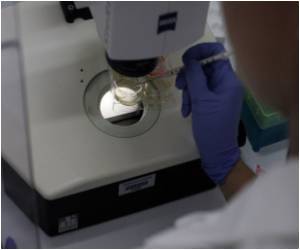A protein used by embryo cells during early development apparently serves as a switch in regulating the spread of cancer, known as metastasis and recently it is found in many different types of cancer.

Metastasis is responsible for 90 percent of cancer-related deaths. More than 575,000 Americans die of cancer each year, the second leading cause of death in the United States after cardiovascular disease.
The scientists, led by principal investigator Thomas Kipps, MD, PhD, Evelyn and Edwin Tasch Chair in Cancer Research at UC San Diego, discovered an association between the protein, called Receptor-tyrosine-kinase-like Orphan Receptor 1 or ROR1, and the epithelial-mesenchymal transition (EMT), a process that occurs during embryogenesis when cells migrate and then grow into new organs during early development.
In research published in 2012, Kipps and colleagues reported for the first time that ROR1 is expressed during embryogenesis and by many different types of cancers, but not by normal post-partum tissues. They also discovered that silencing the protein impaired the growth and survival of human breast cancer cells.
In their latest work, the scientists found that high-level expression of ROR1 in breast cancer cells correlates to higher rates of relapse and metastasis in patients with breast adenocarcinoma, a type of cancer that originates in glandular tissue. Conversely, silencing expression of ROR1 reverses EMT and inhibits the metastatic spread of breast cancer cells in animal models. Moreover, the researchers found that treatment with a monoclonal antibody targeting ROR1 also could inhibit the growth and spread of highly metastatic tumors that express ROR1.
"We might think of ROR1 as an oncogene," said study co-author Bing Cui, PhD, a postdoctoral fellow in Kipps' lab. "This means ROR1 has some tumor initiation functions. However, ROR1 also appears to allow transformed cells to invade other tissues and to promote tumor expansion in both the primary tumor site and in distant organs."
Advertisement
Source-Eurekalert












